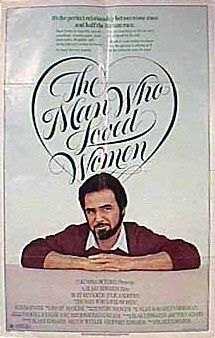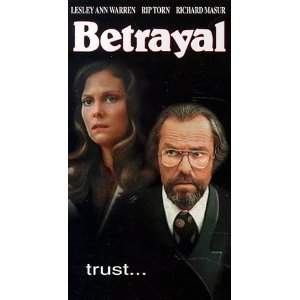Related Research Articles
At common law, damages are a remedy in the form of a monetary award to be paid to a claimant as compensation for loss or injury. To warrant the award, the claimant must show that a breach of duty has caused foreseeable loss. To be recognized at law, the loss must involve damage to property, or mental or physical injury; pure economic loss is rarely recognized for the award of damages.
Liebeck v. McDonald's Restaurants, also known as the McDonald's coffee case and the hot coffee lawsuit, was a highly publicized 1994 product liability lawsuit in the United States against the McDonald's restaurant chain.
Otis O'Neal Horsley, Jr. was a militant anti-abortion activist and Christian Reconstructionist who produced a website called the Nuremberg Files, which provided the home addresses of abortion providers in the United States.
A legal remedy, also referred to as judicial relief or a judicial remedy, is the means with which a court of law, usually in the exercise of civil law jurisdiction, enforces a right, imposes a penalty, or makes another court order to impose its will in order to compensate for the harm of a wrongful act inflicted upon an individual.
Meritor Savings Bank v. Vinson, 477 U.S. 57 (1986), is a US labor law case, where the United States Supreme Court, in a 9–0 decision, recognized sexual harassment as a violation of Title VII of the Civil Rights Act of 1964. The case was the first of its kind to reach the Supreme Court and would redefine sexual harassment in the workplace.
Various individuals, courts and the media around the world have raised concerns about the manner in which cases of child sexual abuse are handled when they occur in congregations of Jehovah's Witnesses. An independent 2009 study in Norway was critical of how Jehovah's Witnesses dealt with cases of child sexual abuse but stated there is no indication that the rate of sexual abuse among Jehovah's Witnesses is higher than found in general society. The organization's stated position is that it abhors child sexual abuse.

The Man Who Loved Women is a 1983 American comedy film directed by Blake Edwards and starring Burt Reynolds, Julie Andrews and Kim Basinger. It is a remake of the 1977 François Truffaut's film L'Homme qui aimait les femmes.
Picard v. Barry Pontiac-Buick, Inc., 654 A.2d 690 is a Rhode Island Supreme Court case often cited in tort law text books to explain the legal concept of battery.

Sex Rehab with Dr. Drew is a VH1 reality television show that documents people being treated for sexual addiction by Dr. Drew Pinsky and his staff at the Pasadena Recovery Center in Pasadena, California. Premiering on November 1, 2009, Sex Rehab was a spin-off of Celebrity Rehab with Dr. Drew, in which Pinsky treats celebrities for substance abuse.
Carol Burnett v. National Enquirer, Inc. was a decision by the California Court of Appeal, which ruled that the "actual malice" required under California law for imposition of punitive damages is distinct from the "actual malice" required by New York Times Co. v. Sullivan to be liable for defaming a "public figure", and that the National Enquirer is not a "newspaper" for the purposes of California libel law.

Helen Singer Kaplan was an Austrian-American sex therapist and the founder of the first clinic in the United States for sexual disorders established at a medical school. The New York Times described Kaplan as someone who was "considered a leader among scientific-oriented sex therapists. She was noted for her efforts to combine some of the insights and techniques of psychoanalysis with behavioral methods." She was also dubbed the "Sex Queen" because of her role as a pioneer in sex therapy during the sexual revolution in 1960s America, and because of her advocacy of the idea that people should enjoy sexual activity as much as possible, as opposed to seeing it as something dirty or harmful. The main purpose of her dissertation is to evaluate the psychosexual dysfunctions because these syndromes are among the most prevalent, worrying and distressing medical complaints of modern times.
Goldwater v. Ginzburg was a 1969 United States court ruling on defamation.
Surrogate partners, formerly referred to as sex surrogates, are practitioners trained in addressing issues of intimacy and sexuality. A surrogate partner works in collaboration with a talk therapist to meet the goals of their client. This triadic model, composed of the client, talk therapist, and surrogate partner therapist is used to dually support the client and the surrogate partner therapist. The client engages with the surrogate partner therapist in experiential exercises and builds a relationship with their surrogate partner therapist while processing and integrating their experiences with their talk therapist or clinician.

Betrayal is a 1978 American made-for-television drama film directed by Paul Wendkos and starring Rip Torn and Lesley Ann Warren, based on a non-fiction book by Julie Roy with Lucy Freeman. The subject is a real life lawsuit about a woman who sued her psychiatrist after he allegedly lured her into a sexual relationship. The film was first aired on NBC Monday Night at the Movies on November 13, 1978.
Cheryl Cohen-Greene is an American sexual surrogate partner, speaker, and author, known for her work with American poet Mark O'Brien in 1986, before his death in 1999. She was portrayed in the film The Sessions by Helen Hunt, who received an Academy Award nomination for her performance. In 2012, Cohen-Greene released her memoire, titled An Intimate Life: Sex, Love, and My Journey as a Surrogate Partner.
Robert Stephan Cohen is an American attorney specializing in divorce cases. He is a senior partner at Cohen Clair Lans Greifer & Simpson LLP, a 21-person family law firm in New York City.
The Ramona false memory case concerns a California man, Gary Ramona, who successfully sued psychiatrists who supposedly implanted false memories of abuse into his daughter. This was the first instance of a lawsuit against a therapist over implanted memories. It was also the first instance of a person who was not a patient bringing a malpractice suit in this field.
Smithfield Foods has been sued multiple times related to the disposal of hog waste using anaerobic lagoons. State governments have responded to the suits against Smithfield and similar litigation by strengthening ”Right-to-Farm” laws.
Jeff Anderson is an American personal injury attorney who leads Jeff Anderson & Associates PA with headquarters in St. Paul, Minnesota. He is best known for litigating cases involving child sexual abuse by the Catholic clergy beginning in the 1980s and for using media events to encourage child sexual abuse victims to speak out.
References
- 1 2 3 4 5 6 Freeman, Lucy; Roy, Julie (1976). Betrayal . Briarcliff Manor, New York: Stein and Day. ISBN 0-8128-1889-X.
- 1 2 Commire, Anne; Klezmer, Deborah, eds. (2007). Dictionary of Women Worldwide . Waterford, Connecticut: Yorkin Publications. ISBN 978-0-7876-7585-1.
- 1 2 3 4 Mason, Paul E.; Stitham, Mark Dillen (December 1977). "The Expensive Dalliance: Assessing the Cost of Patient-Therapist Sex" (PDF). The Journal of the American Academy of Psychiatry and the Law. 5 (4). American Academy of Psychiatry and the Law: 450–455. PMID 616311.
- 1 2 Rachman, Arnold Wm. (2022). "The "sensuous psychiatrist": the case of Julie Roy vs. Renatus Hartogs, MD, PhD: landmark case of sexual abuse by a therapist". Psychoanalysis and Society's Neglect of the Sexual Abuse of Children, Youth, and Adults. Abingdon, Oxfordshire: Routledge. pp. 119–121. doi:10.4324/9780429298431-11. ISBN 978-0-429-29843-1.
- ↑ "A Doctor Accused of Sex Inducement Must Pay $350,000". The New York Times . March 20, 1975.
- ↑ Roy v. Hartogs, 85 Misc.2d 891 (N.Y. App. Div., 1st Dept.January 30, 1976)
- ↑ Roy v. Hartogs, 81 Misc.2d 350 (Civil Court of the City of New YorkMarch 14, 1975)
- ↑ Johnston, Laurie (December 23, 1976). "Hearings are Begun in Psychiatrist Case". The New York Times .
- ↑ "The Sexes: Love Thy Analyst". Time . March 24, 1975. Retrieved June 22, 2024.